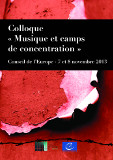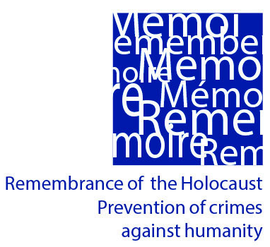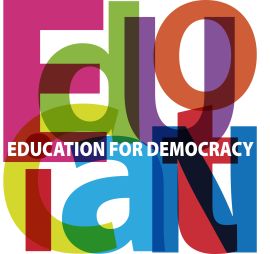About us

The values which the Council of Europe stands for: democracy, human rights and the rule of law, are part of a preventive post-Holocaust effort which guarantees the construction of a European society striving to learn to respect the equal dignity of all, thanks to, among other things, intercultural dialogue.
Since 1954, the European Cultural Convention* has highlighted the importance of teaching the history of all the member States in its European dimension, in order to foster mutual understanding.
It was in the framework of the "Learning and teaching about the history of Europe in the 20th century" project that the Holocaust theme found its place, following the Declaration of the International Forum on the Holocaust, held in Stockholm in 2000. In 2001, the Council of Europe introduced a Day of Remembrance of the Holocaust and for the Prevention of Crimes against Humanity (Recommendation Rec CM (2001)15).
The Holocaust was unprecedented in human history. Hence knowledge of this major element of 20th century history is needed with a view to preventing crimes against humanity.
Until 2010, the project focused on the school environment, more specifically secondary education, with a multidisciplinary approach.
Only a never-ending process of education can prevent such horrors from recurring. This is a task for all people of good will and the unanimous priority of the Council of Europe and all the European nations that stand alongside it.
 A cross-cutting programme
A cross-cutting programme
The programme has developped its cross-cutting approach throughout the Organisation and in priority in the sectors of Education, Culture and Heritage, and Youth.
Making the programme a cross-cutting one facilitates discussions of the following questions:
- How to improve teaching about and on the basis of the Holocaust outside the classroom?
- Why give such prominence to passing on the remembrance of the Holocaust outside the school environment?
- What basic information should be given to the many and varied target groups to ensure that the remembrance of the Holocaust is passed on?
- How to use the diachronic approach to create awareness of the importance of the culture and the human, spiritual and material heritage destroyed by the Holocaust? For instance, the Council of Europe's "Jewish Heritage" and "Roma Culture and Heritage" European Cultural Routes provide a starting point for developing positive knowledge of a European cultural heritage in great jeopardy.
- How to use the cross-cutting approach to help to prevent crimes against humanity, open up new angles for understanding the Holocaust and combat its trivialisation?
- Means of enriching and diversifying a wide range of teaching methods (using fiction films, survivors' testimonies, visits to authentic remembrance sites), making use of arts (music, literature, drama) which offer attractive ways of passing on knowledge and life skills.
* In Septembre 2015, States parties to the European Cultural Convention are the following: Albania, Andorra, Armenia, Austria, Azerbaijan, Belarus, Belgium, Bosnia and Herzegovina, Bulgaria, Croatia, Cyprus, Czech Republic, Denmark, Estonia, Finland, France, Georgia, Holy See, Germany, Greece, Hungary, Iceland, Ireland, Italy, Kazakhstan, Latvia, Liechtenstein, Lithuania, Luxembourg, Malta, Republic of Moldova, Monaco, Montenegro, Netherlands, Norway, Poland, Portugal, Romania, Russian Federation, San Marino, Serbia, Slovak Republic, Slovenia, Spain, Sweden, Switzerland, "The former Yugoslav Republic of Macedonia", Turkey, Ukraine, United Kingdom.
Actes du Colloque
« Musique et camps de concentration » Conseil de l’Europe - 7 et 8 novembre 2013

Editor: Amaury Du Closel
2015
French only




